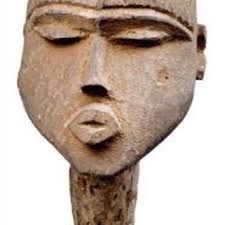Health warning: The ingredient used by millions could cut life expectancy by two years












Health warning: The ingredient used by millions could cut life expectancy by two years
While people usually look for the magic food that could add to their life expectancy, there's also the other side of the coin to consider. Certain foods and ingredients could be compromising your health, while cutting your longevity. New research, published in the European Heart Journal, has added salt to this category.
The staple of home cooking, salt is perhaps the most popular seasoning out there.
With the ability to enhance the flavour of your dish, it is one of the key ingredients found in every kitchen.
However, if you sprinkle this seasoning on your food, you could be at a higher risk of dying early, according to the new study.
Looking at more than 500,000 people, the research found that those who consumed extra salt had a 28 percent higher risk of premature death.
If you prefer to keep the salt shaker locked in the kitchen cupboard, you may be onto something as those who rarely or never used the ingredient didn't face the same longevity risk.
Regarding the exact time you're risking by using the cheap seasoning, the researchers found that men aged 50 could lose 2.28 years of their life by consuming extra salt.
While women of the same age could see their life expectancy cut by around a year-and-a-half.
The study first collected data between the years 2006 and 2010. Nine years later, they also conducted a follow-up.
be}
The lead researcher Professor Lu Qi said: "In the Western diet, adding salt at the table accounts for six percent to 20 percent of total salt intake and provides a unique way to evaluate the association between habitual sodium intake and the risk of death."
However, there's also some good news as even a "modest reduction" in your sodium intake could have "substantial" effects on your health.
Furthermore, the research team also explained that this risk of early death was slightly lower in those who ate more fruit and vegetables. However, the difference wasn't "significant".
How much salt should I eat?
The NHS shares that adults should have no more than six grams of salt a day, which is the equivalent of one teaspoon.
However, the World Heart Organization (WHO) recommends going even lower, with their advice stating that adults should have no more than five grams of salt per day.
This new study shares that based on their findings, the optimal amount, or the "sweet spot", remains to be identified.
Dr Qi added: "Because our study is the first to report a relation between adding salt to foods and mortality, further studies are needed to validate the findings before making recommendations."
While the salt shaker can add to your daily allowance, the study warned that actually most of your salt intake comes from your groceries.

Companies add salt to the food your buy, with every single item containing the common seasoning.
Fortunately, in the UK there's a reference intake imprinted on food labels, informing you of these values.
Blood Pressure UK recommends checking these numbers to understand if your food is low, medium or high in salt.
The charity also warns that eating too much salt is one of the biggest causes of high blood pressure.
And this condition is known for raising your risk of life-threatening emergencies such as heart attacks and strokes. So, this represent another reason for cutting back on the common seasoning.
Reference: Daily Express: Diana Buntajova
No thoughts on “Health warning: The ingredient used by millions could cut life expectancy by two years”
Articles - Most Read
- Home
- LIVER DIS-EASE AND GALL BLADDER DIS-EASE
- Contacts
- African Wholistics - Medicines, Machines and Ignorance
- African Wholistics -The Overlooked Revolution
- African Holistics - Seduced by Ignorance and Research
- The Children of the Sun-3
- Kidney Stones-African Holistic Health
- The Serpent and the RainBow-The Jaguar - 2
- PART ONE: DIS-EASE TREATMENT AND HEALTH-3
- 'Tortured' and shackled pupils freed from Nigerian Islamic school
- King Leopold's Ghost - Introduction
- PART ONE: DIS-EASE TREATMENT AND HEALTH-4
- PART ONE: DIS-EASE TREATMENT AND HEALTH-2
- PART ONE: DIS-EASE TREATMENT AND HEALTH-5
- African Wholistics - Medicine
- Menopause
- The Black Pharaohs Nubian Pharaohs of Ancient Egypt
- The Mystery System
- PART ONE: DIS-EASE TREATMENT AND HEALTH-6
Who's On Line?
We have 300 guests and no members online
Ad Agency Remote
Articles - Latest
- The Male G Spot Is Real—and It's the Secret to an Unbelievable Orgasm
- Herbs for Parasitic Infections
- Vaginal Care - From Pubes to Lubes: 8 Ways to Keep Your Vagina Happy
- 5 Negative Side Effects Of Anal Sex
- Your Herbs and Spices Might Contain Arsenic, Cadmium, and Lead
- Struggling COVID-19 Vaccines From AstraZeneca, BioNTech/Pfizer, Moderna Cut Incidence Of Arterial Thromboses That Cause Heart Attacks, Strokes, British Study Shows
- Cartilage comfort - Natural Solutions
- Stop Overthinking Now: 18 Ways to Control Your Mind Again
- Groundbreaking method profiles gene activity in the living brain
- Top 5 health benefits of quinoa
- Chromolaena odorata - Jackanna Bush
- Quickly Drain You Lymph System Using Theses Simple Techniques to Boost Immunity and Remove Toxins
- Doctors from Nigeria 'facing exploitation' in UK
- Amaranth, callaloo, bayam, chauli
- 9 Impressive Benefits of Horsetail
- Collagen The Age-Defying Secret Of The Stars + Popular Products in 2025
- Sarcopenia With Aging
- How to Travel as a Senior (20 Simple Tips)
- Everything you need to know about mangosteen



